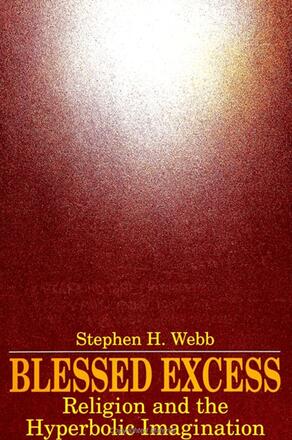
Blessed Excess
Religion and the Hyperbolic Imagination
Alternative formats available from:
Stephen H. Webb is Assistant Professor of Religion and Philosophy at Wabash College. He is the author of Re-figuring Theology: The Rhetoric of Karl Barth, also published by SUNY Press.
Reviews
"This book builds on existing theories of religion and identifies hyperbole as a characteristic of religious understanding. Until now, no one has explicated hyperbole systematically in relation to other tropes—irony, metaphor, analogy, understatement. In so doing, Webb brings genuinely new insight into religion as an intensification of ordinary experience. His choice of texts to illustrate different ways in which hyperbole can function in theological reflection is felicitous. 1 John 4:7, Kierkegaard, Bataille, O'Connor, and Chesterton provide a broad range of test-cases: classical and contemporary, Protestant and Catholic, male- and female-authored, and multiple genres. " — Mary Gerhart, Hobart and William Smith Colleges
"Webb's approach makes possible important and wonderfully fresh ideas on old theological questions, such as evil, God's love, sacrifice, redemption, and grace. The approach suggests a new and very fruitful way to think about various religions. I am eager to spend some time comparing Taoism and Buddhism with respect to their hyperboles, for I suspect I'll finally be able to see just where the real difference between the two styles of thinking lies. I suspect that Taoism's hyperboles are much more like Christianity's than like those in Buddhism. " — David B. Greene, North Carolina State University